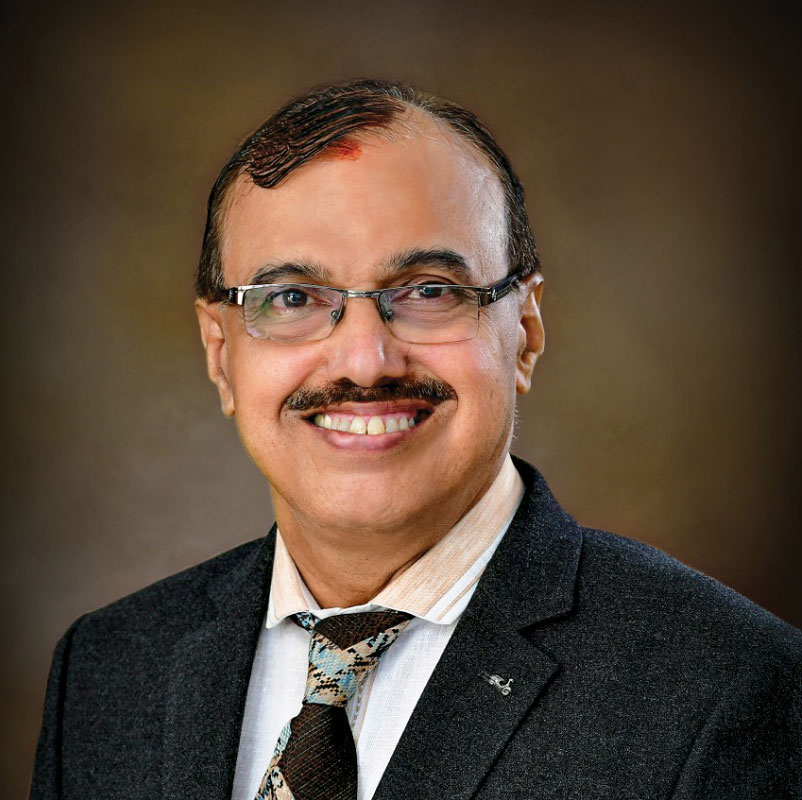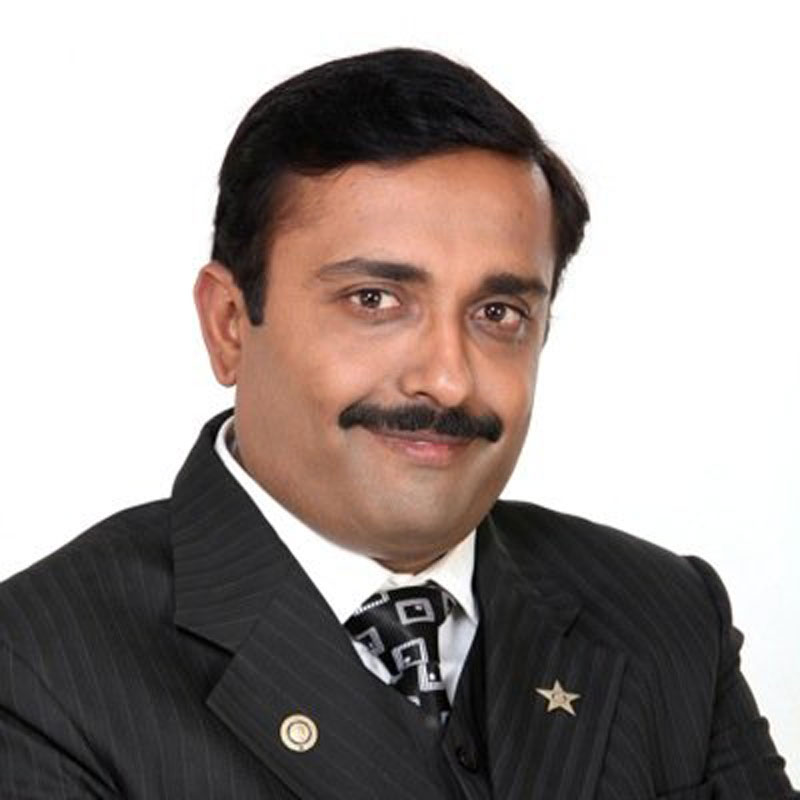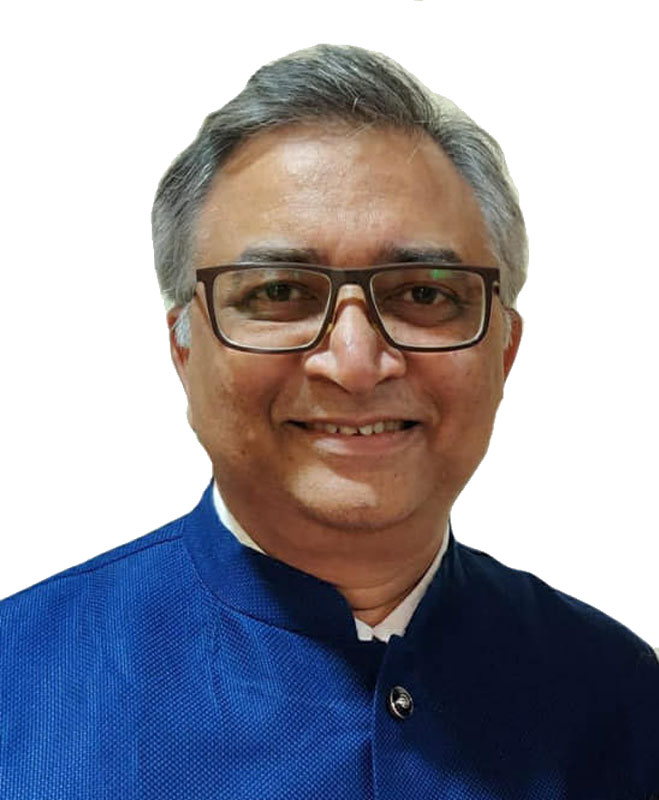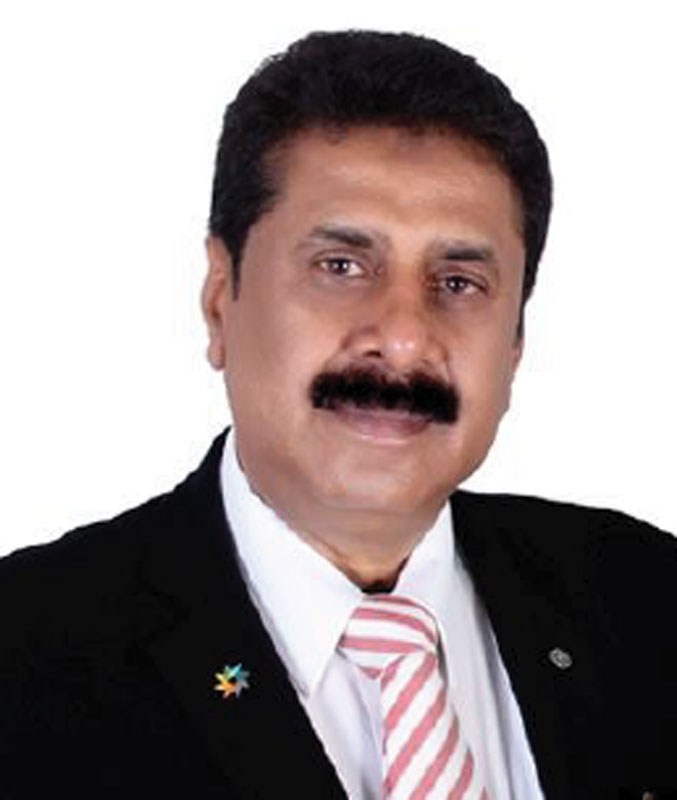He’ll transform Puttur into a clean city


Hotelier-builder, RC Central Mysore, RID 3181
More than 70 out of 85 clubs in his district have resumed weekly physical meetings and 100 per cent of the members are vaccinated. “By August-end, we will charter at least 10 clubs, and I am confident of adding 20 new clubs before the end of this Rotary year. I am hopeful of a net increase of 1,400 members to take the total membership to 4,000 during my year,” says Ravindra Bhat.
His ambitious plan is to turn Puttur into a mega ‘Clean Environment City’, where wet, dry and hazardous waste will be segregated and recycled through a bio-composting process to make tonnes of organic manure for agricultural and other uses. “We have signed an MoU with the Puttur municipality which has given two acres of land to us to install the machinery and take up the recycling process.” This pilot project (GG: `8.92 crore) will see the local residents joining hands with Rotary to make this town green and beautiful, he says. “There will be no dump yards or landfill sites once it is implemented.”
Another pet project of his is to give a facelift to burial grounds across the district. Through a mix of DDF and global grant, 40 cemeteries will be revamped with amenities for the relatives of the deceased, he says. Three major hospitals in Mysuru, including JSS Hospital, will get medical equipment and other facilities through a global grant project ($125,000). Bhat is working to rope in at least 50 per cent of Anns into Rotary by forming exclusive clubs for them. As schools and colleges were closed due to lockdown, “I am still collecting data on the number of Rotaractors and Interactors. But at least 50 new Rotaract clubs will be formed.” His target for TRF giving is $500,000. A former Rotaractor, he joined Rotary in 2002 sponsored by his hotelier-friend Rtn N P Vishwanath.
Promoting Rotary Action Groups

Engineer, RC Pune Sarasbaug, RID 3131
One way to increase membership and get newly-inducted Rotarians involved in service activities is to promote various Action Groups being encouraged by Rotary International, says Pankaj Shah. “We need to create awareness on these action groups which take up exclusive activities like trekking, cycling and other joint endeavours that develop bonding among members.” His goals include 30 new clubs, and 1,000 new Rotarians which will take the membership to 4,700-plus. He is also focusing on satellite clubs that are flexible enough to suit the needs of young professionals.
As schools and colleges are closed in the pandemic, “I will be chartering 20 community-based Rotaract clubs with net increase of 500-plus Rotaractors.”
One of his thrust areas will be starting 10–12 dialysis centres through a mix of GG and CSR funding. “We will also revamp and increase capacity of the existing 10 centres set up by Rotary in the past at major hospitals by providing modern dialysis equipment,” he says.
Once the ongoing project of 12 Happy Villages is completed, “we will do a community assessment and based on the needs of the local people, another set of 10 Happy Villages will be taken up for rural transformation,” explains Shah. The district will also implement 25 Happy Schools in rural areas with the aim to increase their enrolment ratio. “Pandemics will come and go, but Rotary’s service projects are creating an impact in villages,” he says. His target for TRF giving is $2 million. “The overall membership will double in western India in the next 10 years,” he predicts. Shah was ‘self-inspired to do social service’ which led him to join Rotary in 2009.
Urban forests to bloom in Gujarat

Air-conditioning, RC Udhna, RID 3060
Each One Bring One is a revolutionary concept devised by RI President Shekhar Mehta and “this EOBO concept has already done wonders in my district,” says Santosh Pradhan. In July alone, the district has added 500 new members, and “we will have a net increase of 1,500 which will push our membership to around 6,400 by the end of this Rotary year.” He will charter 5–6 new clubs to take the total number to 118.
Pradhan has tied up with local NGOs to create 5–7 urban forests in cities and towns across Gujarat. “The Miyawaki concept will be adapted to Gujarati topography to develop social forestry which will be the landmarks of cities,” he says. The funding will be through member contributions.
The district has signed an MoU with the Gujarat government to provide micro loans to at least 50,000 rural women to give them a livelihood. For empowering girls, impactful projects will be taken up under the leadership of PDG Deepak Agrawal. On the Rotaract front, he is confident of adding 15–20 new clubs, and 250 Rotaractors taking the total to 75 clubs with over 2,250 members. He aims to collect $1.5 million for TRF.
Though he became a Rotaractor in 1990, “I lost touch with Rotary when I shifted to this place in Gujarat. However, during a train journey, Rtn Dharmesh Kachiwala, a past president, impressed me so much that I joined my home club in 2008,” he smiles.
Looking for new opportunities in the pandemic

Architect, RC Bangalore Metro, RID 3190
He is another Rotaractor who has become a district governor. When things get tough, the tough gets going, says Fazal Mahmood, as he gets ready to motivate the clubs and district team to spread out and take up “impactful service projects in villages despite the challenges posed by the pandemic.” The health crisis has also opened up many opportunities for Rotarians to get involved in community projects, thus shoring up Rotary’s public image. Recently, he formed an exclusive satellite club for the transgender community, “probably the first such group in Rotary for this marginalised section.” He aims to charter 25 new and achieve a 30 per cent growth in membership.
Project Zero Hunger is distributing groceries, food packets and other essentials to migrant and underprivileged families on a daily basis. On birthdays, festivals and special occasions, Rotarians and their families sponsor meals for attendants of patients at hospitals in Bengaluru. “The Anns of the clubs led by the district’s First Lady prepare food at homes and deliver it to hospitals,” says Mahmood. Under Project Hosa Belaku (New Light), each club will take care of a slum and a nearby police station by setting up all the civic amenities they need for social development.
Another innovation, Project Sahayoga (collaboration), enables two city clubs to partner with a rural club to do projects under seven focus areas in that village. The district will allot a DDF of $1,000 for each such project. He aims to collect $1.25 million for TRF. A Programme of Scale is on the cards for teaching schoolchildren English language for effective communication. After being a Rotaractor from 1979-88, he turned Rotarian in 1993 to give wings to his dreams.






